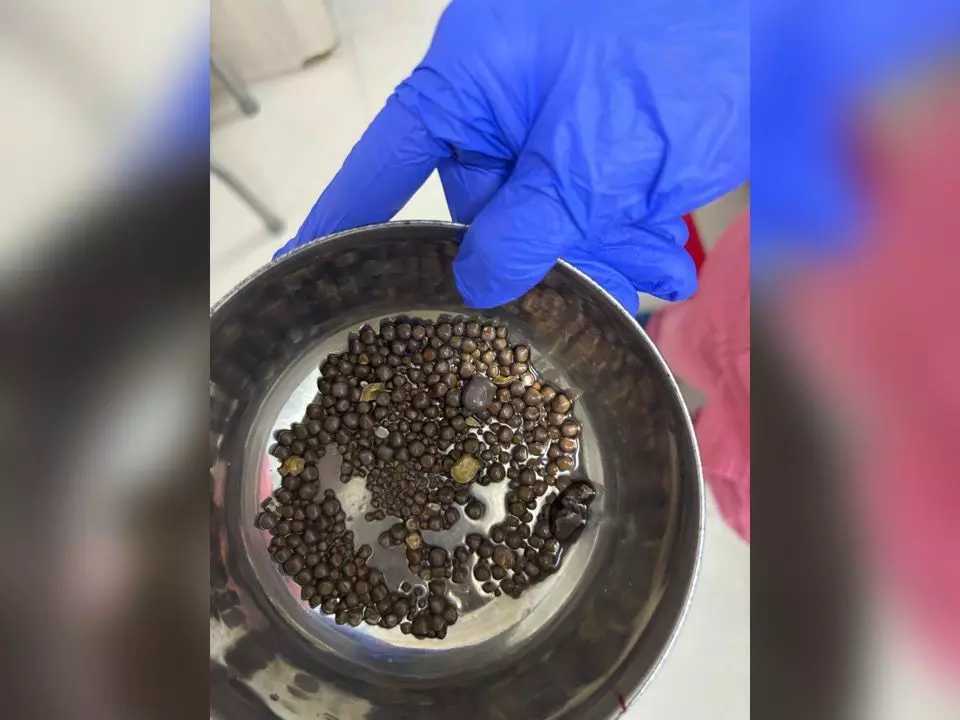Hyderabad: 418 kidney stones removed from 60-year-old patient by AINU docs
This feat was accomplished through a minimally invasive procedure, marking a significant advancement in surgical techniques
By Sulogna Mehta
Hyderabad: In a surgical milestone just prior to the World Kidney Day on March 14, a team of expert urologists from the city has successfully removed 418 kidney stones from a patient with only 27% kidney function. This feat was accomplished through a minimally invasive procedure, marking a significant advancement in surgical techniques for kidney stone removal.
The 60-year-old patient presented a unique challenge with an unprecedented number of kidney stones and severely impaired kidney function. Rather than opting for a conventional, more invasive approach, the medical team from the Asian Institute of Nephrology and Urology, Hyderabad, led by Dr K Purna Chandra Reddy, Dr Gopal R Tak and Dr M Dinesh, chose to utilize percutaneous nephrolithotomy (PCNL), which is a minimally invasive technique.
PCNL involves making small incisions through which specialized instruments, including a miniature camera and laser probes, are inserted into the kidney. This allows surgeons to precisely target and remove the stones without the need for large surgical openings, minimising trauma and expediting recovery for the patient. Doctors advised the patient to take more water and less salt during summer.
The intricate procedure, which required exceptional skill and precision, unfolded over two hours as the surgical team meticulously removed each stone, navigating through the intricate network of the urinary tract. Advanced imaging technology and state-of-the-art equipment played a crucial role in addressing the extensive stone burden while preserving the delicate balance of kidney function.
According to the doctors, the successful removal of 418 kidney stones through small keyholes in the kidney is not only a testament to the power of innovation but represents the potential for minimally invasive techniques in treating complex urological conditions and also offers hope to patients grappling with kidney stones and facing related challenges worldwide.